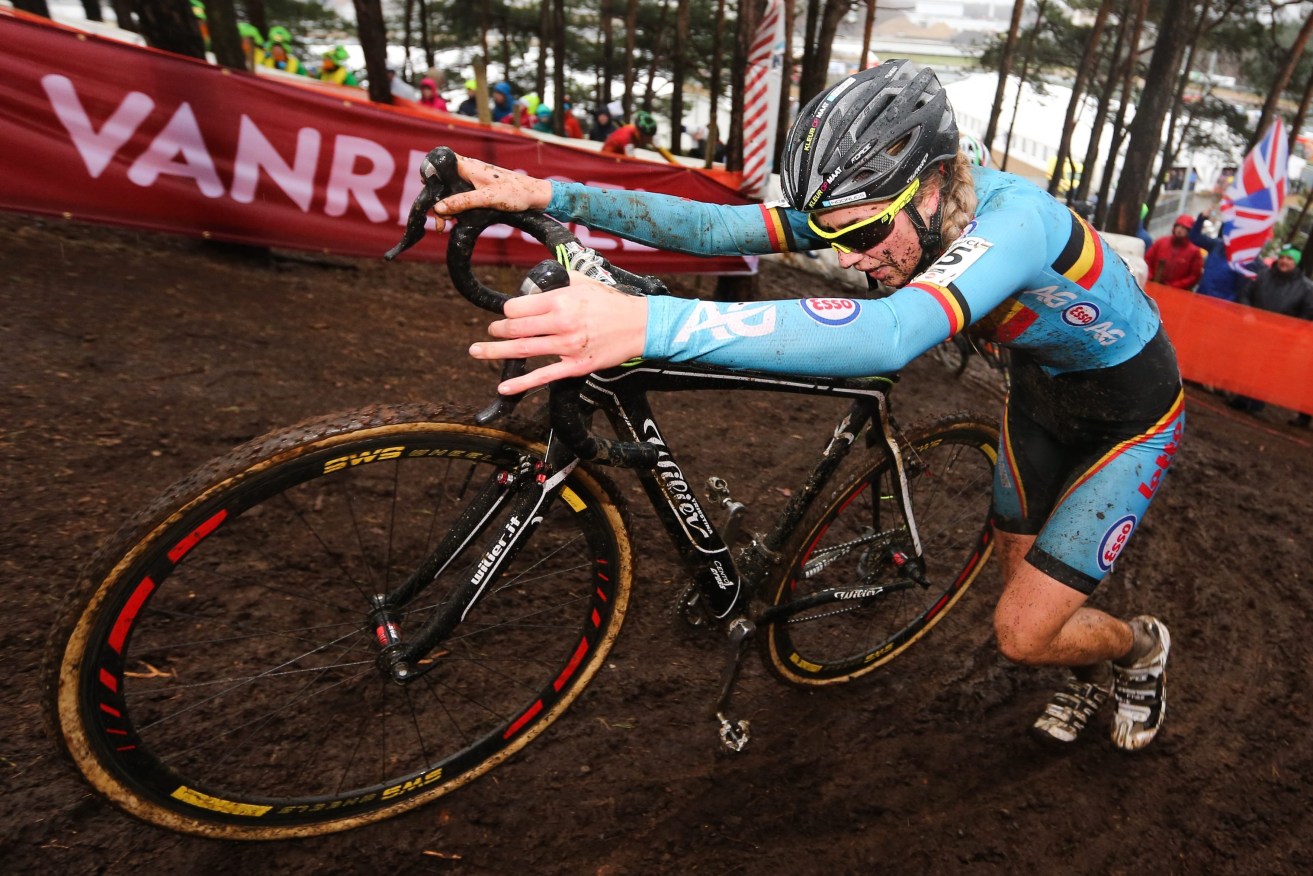Six-year ban for “mechanical doping” cyclist
Caught using a hidden motor at a world championship race, cyclo-cross rider Femke Van Den Driessche of Belgium has been banned from cycling for six years.

Femke Van Den Driessche competing in the women's Under 23 race at the 2016 cyclo-cross World Championships. Photo: TIM VAN WICHELEN, EPA.
The sanction imposed overnight by the International Cycling Union is a first using its rules on technological fraud.
“This case is a major victory for the UCI and all those fans, riders and teams who want to be assured that we will keep this form of cheating out of our sport,” UCI president Brian Cookson said in a statement.
The UCI banned Van Den Driessche through October 10, 2021, stripped her of the Under-23 European title she won last November and fined her 20,000 Swiss francs ($A26,545).
She must return all prize money and trophies, including her Belgian national title, won since October 11, the UCI disciplinary tribunal ruled.
The 19-year-old rider had said she would skip her disciplinary hearing at the UCI’s Swiss offices and retire from racing.
The motor was found using magnetic resonance scans of bikes in the pits area at the women’s world under-23 cyclo-cross race in Belgium in January.
“The motor was a Vivax which was concealed along with a battery in the seat-tube,” the UCI said.
“It was controlled by a Bluetooth switch installed underneath the handlebar tape.
“This new method of testing has proven in trials to be extremely effective in locating hidden motors or other forms of technological fraud as it quickly detects motors, magnetic fields and solid objects concealed in a frame or components.”
The ruling followed 10 days after a French broadcaster and Italian newspaper alleged it used thermal cameras to detect suspected motors in bikes in two men’s road races in March.
Cookson said last week the claims were based on “inconclusive” evidence, and expressed confidence in the UCI’s detection methods.
-AP




